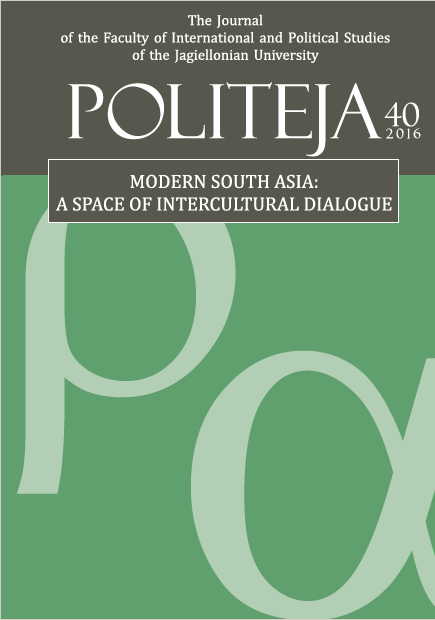Caste in South Asia: From Ritual Hierarchy to Politics of Difference
Caste in South Asia: From Ritual Hierarchy to Politics of Difference
Author(s): Madhusudan SubediSubject(s): Politics / Political Sciences, Politics, Political Theory
Published by: KSIĘGARNIA AKADEMICKA Sp. z o.o.
Keywords: Caste system; identity politics; inequality; collective bargaining; Nepal
Summary/Abstract: Caste has been in existence for centuries in South Asia, though its forms and contents vary across the region. Caste is a mode of power, a weapon of action and one of the criteria of making people’s collective identity within groups. I argue, in this paper, that caste is a product of complex histories and exists today in multiple forms. There has been a major change from treating caste as a rigid ritual stratum to caste as “identity to negotiate power and resources.” It operates as a symbol of collective identity and a basis for collective bargaining of limited resources and representation in various organizations and administrative institutions. The caste system eroded at the ritual level, but emerged at the political and economic levels in India and Nepal.
Journal: Politeja - Pismo Wydziału Studiów Międzynarodowych i Politycznych Uniwersytetu Jagiellońskiego
- Issue Year: 13/2016
- Issue No: 40
- Page Range: 319-339
- Page Count: 21
- Language: English

